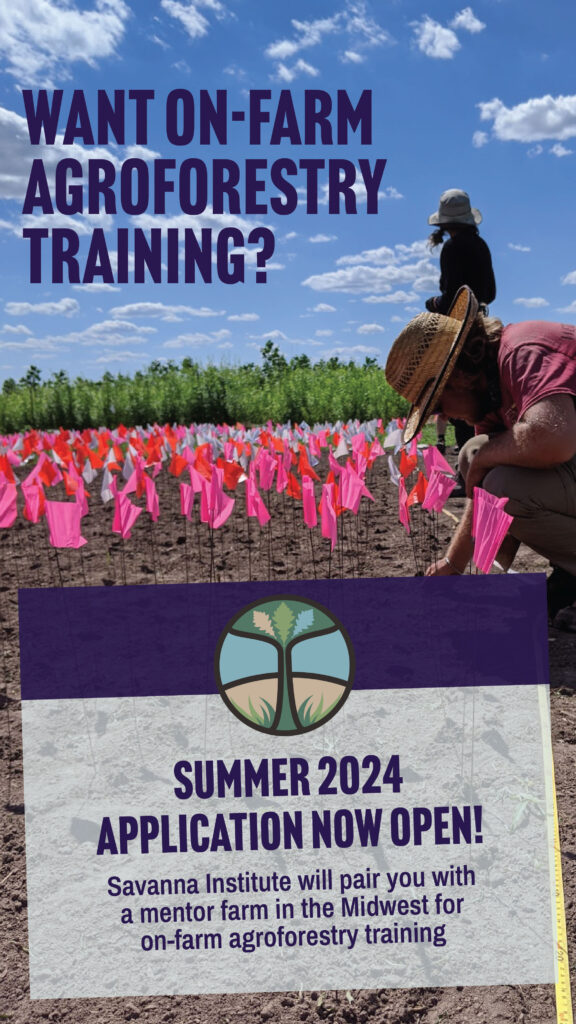
How to plant a silvopasture with All Seasons Farm
All Seasons Farm in Cashton, WI is home to 50 grass-fed dairy cattle managed by Tucker and Becky Gretebeck. They sell the milk to the Organic Valley Dairy Cooperative headquartered nearby. The farm is also home to a menagerie of adorable animals that has become a local petting zoo for the town. In May 2022, it added 1100 trees to its farm family.
When farmers plant trees purposefully in animal pastures, agroforesters call this practice silvopasture. The trees in the silvopasture system provide many benefits for the animals, the farmer and the local environment. Trees provide the animals with forage and shade, which means they spend more time grazing, leading to more milk for farmers. Once the trees mature in a few years, farmers can also choose to harvest tree nuts and timber for added farm income.
“What we’re doing today is another extension of our changing practices.”
– Tucker Gretebeck, All Seasons Farm
The Gretebecks hope the trees will provide another important benefit to the farm: resilience during floods. In 2018, ten to thirteen inches of rain flooded the area breaching a nearby dam. A wall of water washed away sheds, machinery and fences down by the pumpkin patch at All Seasons Farm. The trees along the pasture edge slid into the valley on the land and the water surge landed the Gretebeck’s wagon fifteen feet high in the tree canopy. The DNR had to rescue the wagon with a lift. Insurance, however, covered little of the flood damage.
The deep, perennial roots of trees planted in carefully plotted lines along the contours of the hills can hold in and bind up the soil, which help prevent erosion during heavy rains. All Seasons Farm sits among the rolling hills of Wisconsin’s Driftless region, on top of the Mississippi River watershed. The Gretebecks’ work to protect soil and water quality is important to the entire region and beyond.
Planting a thousand trees on the landscape is a big project. It took a lot of planning and collaboration leading up to the sunny May morning when volunteers showed up to plant trees. The Savanna Institute helped All Seasons Farm design the silvopasture through its technical support program, which provides free advising to landowners in Wisconsin and Illinois.
The Nature Conservancy provided a grant through Monroe County to fund the project and Organic Valley supported it as part of its sustainability work and to see how the silvopasture can benefit farmers in the cooperative. Wisconsin Land + Water, the Monroe County Climate Change Task Force, and the Monroe County Land Conservation Department all joined in to partner on the agroforestry project.
More from Perennial AF
NSAC Applauds Introduction of the Innovative Practices for Soil Health Act of 2024
The Innovative Practices for Soil Health Act seeks to make needed improvements to United States Department of Agriculture (USDA) conservation programs, as well as designate four national and regional agroforestry centers, to ensure these programs can be useful for farmers who want to incorporate perennial systems or agroforestry into their operations.
🔊“Grass Holds the World Together” – A Beginning Farmer Interviews Greg Judy
This episode features a recorded phone interview between Missouri silvopasture farmer and author Greg Judy and Iowa State University student Jesse Matt, recorded in 2018 as part of a Savanna Institute outreach project.
🔊“You Should Consider Maple Syrup Production” – with Tony Johnson
Wisconsin Extension forestry specialist Tony Johnson discusses how maple syrup production can open doors for other agroforestry enterprises, and how Wisconsin woodland owners can get started. Plus, Scott Brainard and Eliza Greenman describe the benefits of persimmons as an agroforestry crop.















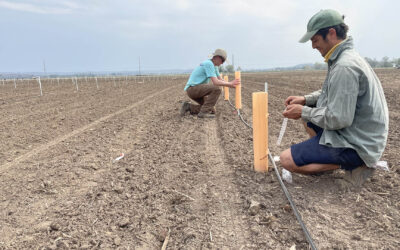
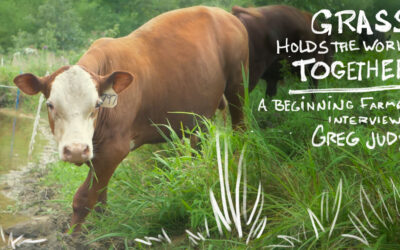
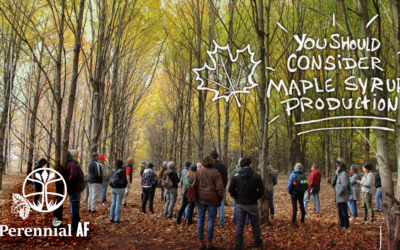
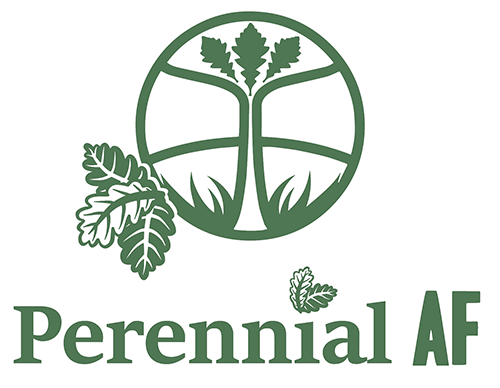


 🔊 “You Can’t Believe It Grows Here” – Project Pawpaw with Adam D’Angelo
🔊 “You Can’t Believe It Grows Here” – Project Pawpaw with Adam D’Angelo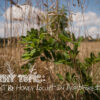 🔊 A Thorny Topic: Black Locust and Honey Locust for Agroforestry
🔊 A Thorny Topic: Black Locust and Honey Locust for Agroforestry 🔊 “Spreadsheets on the Radio” – Farm Viability and the Fruit & Nut Compass with John Hendrickson
🔊 “Spreadsheets on the Radio” – Farm Viability and the Fruit & Nut Compass with John Hendrickson 🔊 Getting Started with Forest Farming – Ingrid Daudert, Karam Sheban, and Robin Suggs
🔊 Getting Started with Forest Farming – Ingrid Daudert, Karam Sheban, and Robin Suggs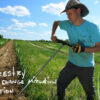 🔊 Agroforestry for Climate Change Mitigation and Adaptation – with Nate Lawrence and Monika Shea
🔊 Agroforestry for Climate Change Mitigation and Adaptation – with Nate Lawrence and Monika Shea